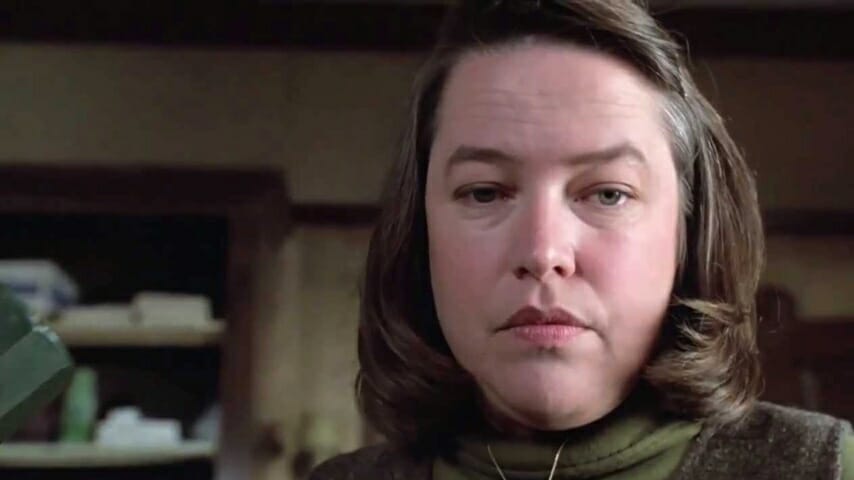Autumn Classics: Misery (1990)
Thirty years ago, Rob Reiner's adaptation of King's novel became an iconic thriller.

As the nights grow chilly and you become convinced you’ve just seen a red balloon peeking out of every storm drain, lovers of film often find themselves returning to the melancholy and macabre movies that evoke the feeling of autumn. Ken Lowe is revisiting four such Autumn Classics during the month of October. Catch up by reading his take on Jacob’s Ladder and catch up on all past entries here.
Stephen King adaptations, as I have opined before, are extremely hit or miss. It’s hard to believe that I’ve been revisiting autumn movies for three years now and no other King film adaptations have made their way into Autumn Classics until now. Misery, directed by Rob Reiner, is set over a severe winter and the beginning of a stormy spring, but hear me out: It is an autumn movie for those who start suffering from seasonal depression the moment the sun sets any earlier than 8 p.m.
In the gigantic canon of King adaptations, each one wildly different in quality and tone than every other, it is the only one I can think of where both the laughs and the horror seem entirely intentional, and are never working at cross purposes.

Paul Sheldon (James Caan) pours himself precisely one flute of champagne and smokes precisely one cigarette to ring in the occasion of finishing his latest novel—the first one since his wildly popular “Misery” series, which we gather are about the life and loves of a 19th century woman. The final book in that series is set to print, and he confides in his literary agent (Lauren Bacall) that he’s both nervous about writing an original work but determined to prove he can write literally anything else.
On the snowy drive away from the winter lodge where he traditionally finishes his works, the weather gets the better of him and he goes careening off the road, waking up in the home of a nurse, Annie (Kathy Bates, in a giddily inspired casting turn). Sheldon is completely out of commission—legs broken, arm in a sling, laid up and snowed in at Annie’s house, and on a steady diet of liquid and painkillers.
Right from the start we know something is off, of course: Annie’s pig is named “Misery,” she moved here because she knew Sheldon always came here to write, and she seems to go from cheery and mousy to fiery and ranting at the drop of a pin. It doesn’t take long for him to figure out that the phone in her house isn’t actually out, the roads aren’t actually closed, and Annie isn’t (just) the gushing fangirl she seems to be. Sheldon isn’t a patient in her house, but a prisoner, and she really, really does not like that he’s just killed off her favorite character.

-

-

-

-

-

-

-

-

-

-

-

-

-

-

-

-

-

-

-

-

-

-

-

-

-

-

-

-

-

-

-

-

-

-

-

-

-

-

-

-









































